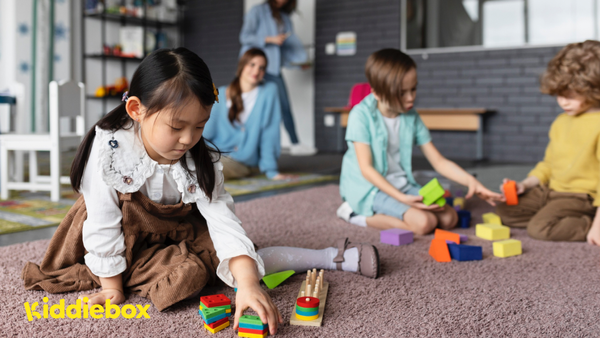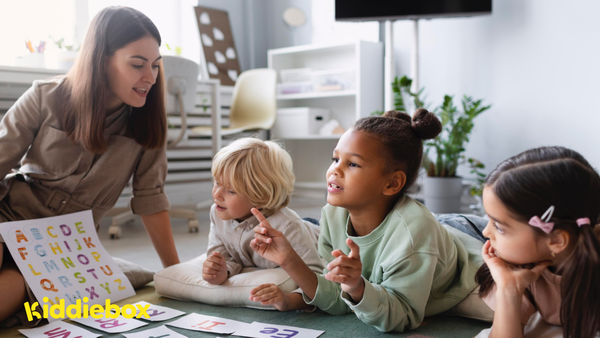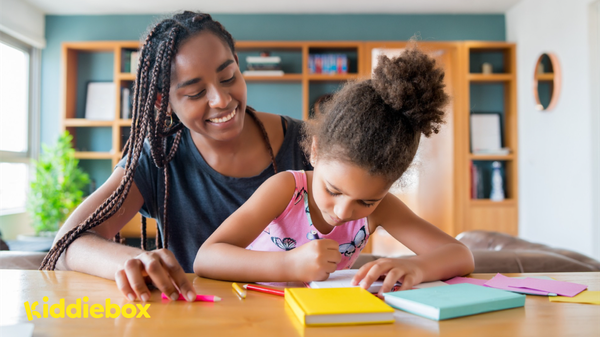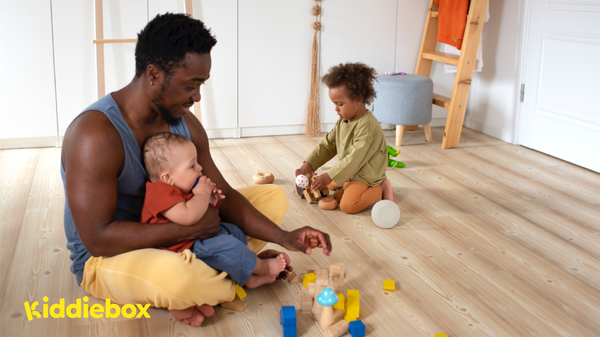The First Five Years of a Child; All you need to know about Child Development
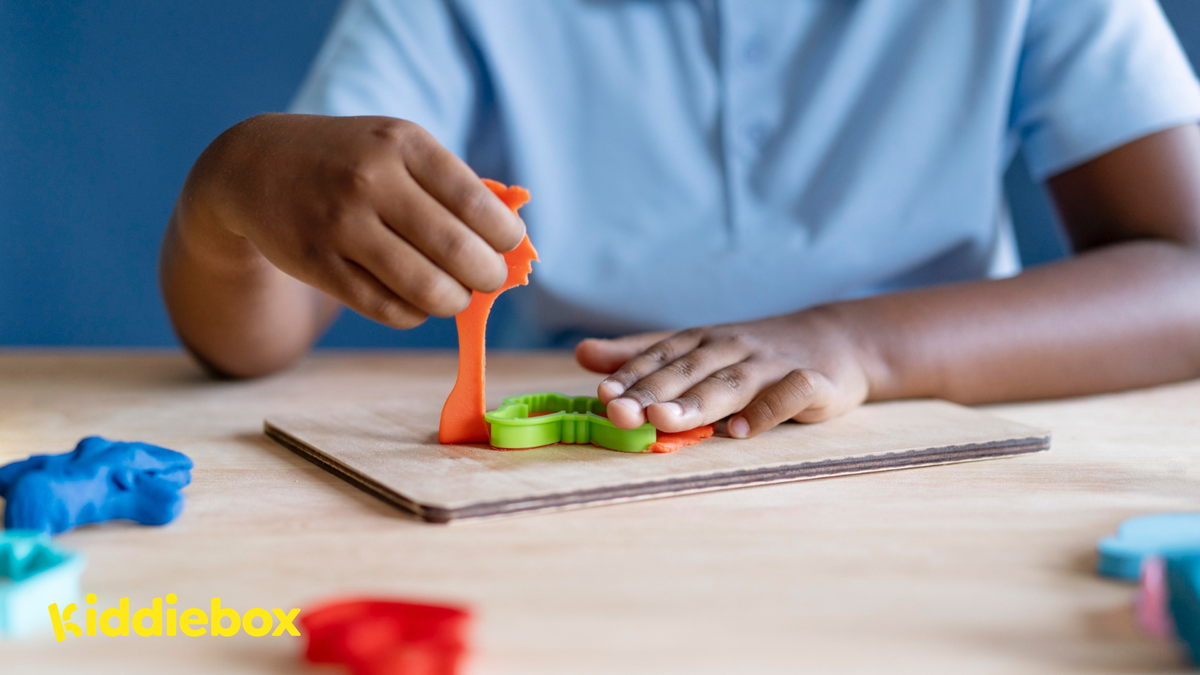
The first five years of a child's life are essential for their development, setting the foundation for their future growth and learning. Children experience rapid progress across physical, cognitive, emotional, and social domains during this period. Understanding these milestones will help you as a parent or teacher support the child's development effectively.
In this guide, we will provide an overview of what to expect at each stage of a child's development and what you can do to encourage development.
- Physical Development
Birth to 6 Months
- Milestones: Reflexes like sucking and grasping, head control, and rolling over.
- Activities to encourage development: Engage in tummy time to strengthen neck and shoulder muscles, gently massage to soothe and stimulate, and offer sensory toys to stimulate their senses.
6 to 12 Months
- Milestones: Sitting up, crawling, beginning to stand with support.
- Activities: Baby-proof your home to ensure safety as they start exploring, engage in interactive play, and introduce a variety of solid foods to their diet.
1 to 2 Years
- Milestones: Walking, running, and fine motor skills such as grasping small objects.
- Activities: Visit playgrounds to encourage physical play, use puzzles and stacking toys to develop fine motor skills, and engage in activities that promote balance and coordination.
2 to 3 Years
- Milestones: Improved coordination, climbing, and kicking a ball.
- Activities: Encourage physical play with simple sports, offer tricycles for riding, and provide opportunities for climbing and exploring in safe environments.
3 to 5 Years
- Milestones: Hopping, skipping, and improved hand-eye coordination.
- Activities: Enroll in organized sports, engage in arts and crafts to refine fine motor skills, and participate in dance classes to enhance coordination and rhythm.
- Cognitive Development
Birth to 6 Months
- Milestones: Sensory exploration, recognizing faces, and tracking objects.
- Activities: Play peek-a-boo, use colourful mobiles, and introduce soft books to stimulate visual and cognitive skills.
6 to 12 Months
- Milestones: Understanding object permanence and cause and effect.
- Activities: Play hide and seek with toys, read interactive books, and offer simple problem-solving games.
1 to 2 Years
- Milestones: Naming objects and following simple instructions.
- Activities: Read stories together, play naming games, and use building blocks to enhance cognitive development.
2 to 3 Years
- Milestones: Sorting shapes and completing simple puzzles.
- Activities: Play matching games, offer puzzles, and encourage drawing to develop cognitive and fine motor skills.
3 to 5 Years
- Milestones: Counting and recognizing letters and numbers.
- Activities: Use educational apps, play alphabet games, and engage in counting activities to build foundational
- Emotional Development
Birth to 6 Months
- Milestones: Bonding with caregivers and recognizing familiar faces.
- Activities: Cuddle often, provide responsive caregiving, and use gentle, soothing techniques to build a secure attachment.
6 to 12 Months
- Milestones: Stranger anxiety and showing preferences for certain people and toys.
- Activities: Establish comforting routines, provide familiar objects, and offer reassurance during new experiences.
1 to 2 Years
- Milestones: Expressing needs and beginning to have tantrums.
- Activities: Help them name their emotions, use comforting techniques, and maintain consistent routines to provide security.
2 to 3 Years
- Milestones: Developing empathy and seeking independence.
- Activities: Engage in role-playing games, discuss feelings, and encourage independence within safe boundaries.
3 to 5 Years
- Milestones: Managing emotions and developing self-esteem.
- Activities: Use positive reinforcement, share emotional stories, and encourage cooperative play to build emotional intelligence.
- Social Development
Birth to 6 Months
- Milestones: Making eye contact and responding to social cues.
- Activities: Engage in face-to-face interactions, smile and talk to your baby to build social skills.
6 to 12 Months
- Milestones: Imitating others and playing simple social games.
- Activities: Play interactive games, organize social playdates, and engage in clapping games to encourage social interaction.
1 to 2 Years
- Milestones: Parallel play and beginning to share.
- Activities: Join playgroups, practice turn-taking games, and introduce simple social activities.
2 to 3 Years
- Milestones: Cooperative play and understanding social rules.
- Activities: Organize group activities, engage in role-playing games, and plan structured playdates to foster social skills.
3 to 5 Years
- Milestones: Making friends and understanding empathy.
- Activities: Participate in group sports, team activities, and teach manners to enhance social development.
Tips for Parents
- Consistency and routine: Establish a daily routine to provide a sense of security and predictability.
- Positive reinforcement: Encourage good behaviour and celebrate milestones with praise and rewards.
- Open communication: Talk and listen to your child to foster language development and emotional connection.
- Parental self-care: Take care of your health and well-being to support your child best.
The first five years of your child's life are filled with incredible growth and development. By understanding and supporting their physical, cognitive, emotional, and social milestones, you can help them build a strong foundation for the future. Remember, every child develops at their own pace, so provide encouragement and love as they navigate these formative years. Enjoy the journey and cherish these precious moments with your little one.
